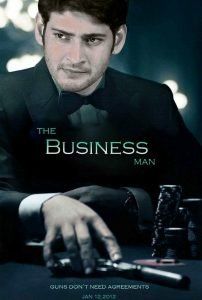The Digital Drudgery
The cursor blinks. Left monitor: a LinkedIn profile, vibrant with professional details, a story waiting to be told. Right monitor: a sterile CRM, a grid demanding input, a soul-sucking digital form. For the SDR hunched over the keyboard, these aren’t two distinct worlds but a single, endless loop. Their job, for the next two hours, for the next two days, for what often feels like the next two hundred and two years, is to manually transfer titles, names, company details, and maybe even a quick, hopeful glance at a recent post, from one screen to the other. Click, copy, paste. Tab, type, click. Rinse and repeat. This isn’t the future of work we were promised; it’s a manual, digital drudgery, a quietly soul-crushing occupation that has turned millions of us into ‘human APIs.’
This isn’t about AI taking our jobs. The real crisis, the one nobody seems to be screaming about, is that millions of jobs have already been effectively replaced – not by intelligent machines, but by turning human beings into their most rudimentary, error-prone, and deeply unfulfilled imitations.
The Core Crisis
Everyone talks about the existential threat of algorithms mastering creativity, writing symphonies, or diagnosing complex diseases. But what about the quiet erosion of dignity in a role where your most valued skill is the speed of your ctrl+C, ctrl+V combination?
We are witnessing a silent epidemic of digital manual labor, where highly skilled professionals, often with degrees and aspirations, are reduced to performing repetitive tasks that software could, and should, automate. It’s a tragedy playing out in countless offices, cubicles, and home setups across the globe, killing morale and wasting human potential on a scale that’s genuinely difficult to comprehend.
The Human Element Lost
I remember once, accidentally, deleting three years of photos from an old hard drive. Just gone. A misplaced click, a hasty confirmation. The immediate punch to the gut was visceral. That data, those memories, felt irretrievable, and the blame was entirely on my own manual oversight. It’s a different scale, sure, but the feeling of utter frustration with a system that allows such fundamental human error, or worse, relies on it, resonates deeply with the human API problem. We’re asked to be perfect machines, but we’re anything but. We make mistakes, we get tired, we get bored, we get distracted. We’re human.
Potential Errors
Efficiency Gain
Take Taylor B. for example. Taylor develops ice cream flavors. Imagine that for a second. Their day involves combining exotic ingredients, balancing sweet and savory, experimenting with textures – a dance of sensory perception and creative problem-solving. Every decision is subjective, driven by instinct, taste, and an intimate understanding of human pleasure. Taylor might spend 22 minutes debating the exact ratio of sea salt to caramel swirl, a nuanced decision that affects millions of taste buds. Now, contrast that with the SDR, copying 222 entries into a CRM. Both are ‘jobs,’ but one taps into the very essence of human creativity, innovation, and subjective experience, while the other strips it away, leaving only the shell of an automated process.
We tell ourselves these entry-level, human API roles are a rite of passage, a way to ‘pay your dues.’ But how many brilliant minds have we blunted on the altar of data entry? How many potential innovators, strategists, or even, dare I say, ice cream flavor developers, have we turned away from meaningful careers because their first experience was so mind-numbingly robotic? The problem isn’t just the boredom; it’s the insidious message it sends: your unique human qualities – your judgment, your empathy, your capacity for complex thought – are irrelevant here. Just follow the process. Be the machine.
The Deeper Disconnect
This isn’t to say all repetitive tasks are bad. There’s a difference between deliberate, meditative repetition – like knitting a scarf or hand-sanding a piece of wood, where each action builds toward a tangible, personally crafted outcome – and the endless, fragmented repetition of transferring data. One connects you to the work, the other disconnects you from yourself. I confess, I still write notes by hand, pages and pages of them, even though I have perfectly good digital tools. There’s a flow, a connection between thought and physical action that feels different. But that’s a choice. The human API doesn’t usually have that luxury.
Meditation
Focusing on craft.
Automation
Fragmented repetition.
Humanity
Disconnect from self.
There’s a dangerous contradiction here. We laud innovation, sing praises of efficiency, and invest billions in AI, yet we tolerate, even institutionalize, this digital Dickensian labor. Companies spend millions on powerful CRMs and sales platforms, only to leave the crucial bridge between prospecting and engagement to the cheapest, most manual labor available. It’s like buying a Formula 1 car and then insisting the driver gets out and pushes it the first 22 meters of every race. It’s illogical, inefficient, and frankly, insulting.
The Available Solution
The irony is, the solution isn’t some futuristic AI that only exists in research labs. The technology to automate this digital manual labor is already here, readily available, and increasingly sophisticated. We’re talking about tools that can intelligently extract, parse, and transfer data with precision and speed that no human API, no matter how dedicated or how many energy drinks they’ve consumed, can match. Think about the countless hours saved, the errors avoided, the human capital liberated. Imagine a sales team freed from copying 172 emails a day, or marketing professionals who no longer spend 42% of their week just organizing spreadsheet data.
Automation Potential
80%
One of the most common applications for these digital helpers is in lead generation. Sales teams, specifically SDRs, spend an inordinate amount of time manually pulling data from platforms like LinkedIn or Apollo.io into their CRMs. It’s a task so universally despised, yet so critical, that it became a bottleneck for many organizations. Tools that function as an Apollo scraper can revolutionize this workflow, automatically gathering specific contact and company information from Apollo.io and pushing it directly into your sales ecosystem, bypassing the need for a human to act as a go-between. This isn’t just about efficiency; it’s about reclaiming human purpose.
What happens when we liberate these human APIs? We don’t just ‘save money’ – though the financial implications are significant, often leading to savings of 22% or more in operational costs. We unleash potential. Those individuals, no longer bogged down by repetitive tasks, can engage in higher-value activities: strategizing, building relationships, creative problem-solving, genuinely understanding customer needs, or even developing new ice cream flavors. They can focus on the *human* aspects of their roles, the very things that AI struggles to replicate.
Reclaiming Human Potential
Consider the scale. If just 2 million people worldwide are spending just two hours a day on these kinds of tasks, that’s 4 million hours *daily* that could be spent on something more meaningful, more impactful, more human. The collective loss of innovation, of well-being, of growth, is staggering. This isn’t a problem that will fix itself, nor is it one that can be ignored. It’s a fundamental challenge to how we value human contribution in the digital age.
The pushback often boils down to cost or fear of change. But what is the true cost of unfulfilled employees, high turnover rates, and a workforce that feels increasingly disconnected from the purpose of their work? The intangible costs-the erosion of morale, the loss of engagement, the sheer waste of human spirit-are far greater than any perceived savings from cheap manual labor. These are not just numbers on a balance sheet; they are the vibrant, dynamic individuals who power our economies and drive our innovations.
So, what are we waiting for? For AI to become so advanced that it points out the obvious inefficiency of our human API roles? Or for a generation of workers to burn out, disillusioned by the emptiness of their daily grind? The solution is clear, accessible, and increasingly vital for any organization that genuinely values its people and its future. The question is not if we can automate these soul-crushing tasks, but why, for the love of human potential, we haven’t done it already. Our collective ingenuity, our capacity for true creation, and perhaps even our shared happiness, are waiting.


